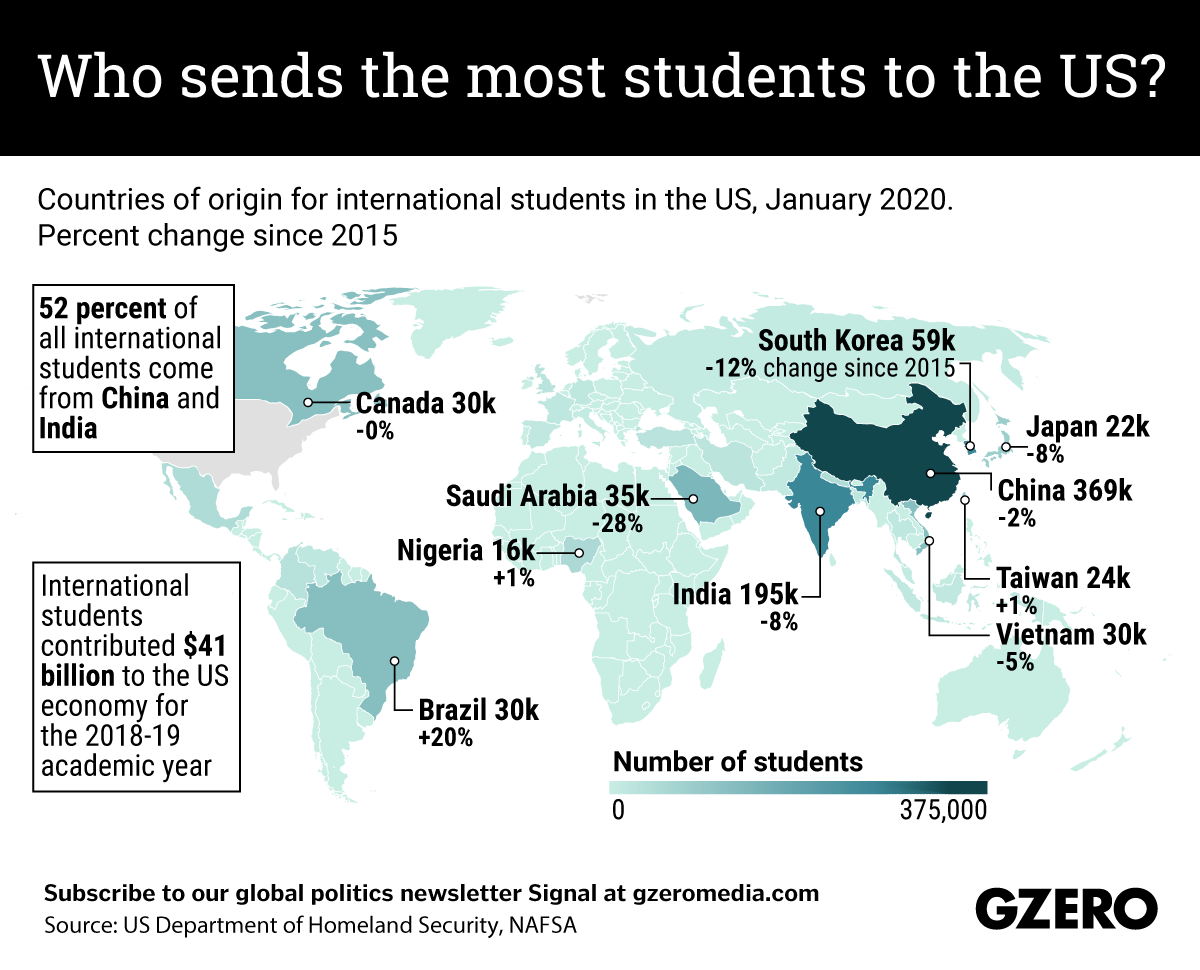July 07, 2020
The Trump administration sent shockwaves through universities this week when it announced that international students in the US could be forced to return to their home countries if courses are not held in classrooms this fall. Around 1 million foreign students are now in limbo as they wait for institutions to formalize plans for the upcoming semester. But it's not only foreign students themselves who stand to lose out: International students infuse cash into American universities and contributed around $41 billion to the US economy in the 2018-19 academic year. So, where do most of these foreign students come from? We take a look here.
From Your Site Articles
More For You
- YouTube
Are we still talking. #PUPPETREGIME
Most Popular
Think you know what's going on around the world? Here's your chance to prove it.
As expected, the Supreme Court struck down the bulk of Donald Trump's sweeping “Liberation Day” tariffs as illegal … and almost nothing changed.
© 2025 GZERO Media. All Rights Reserved | A Eurasia Group media company.
